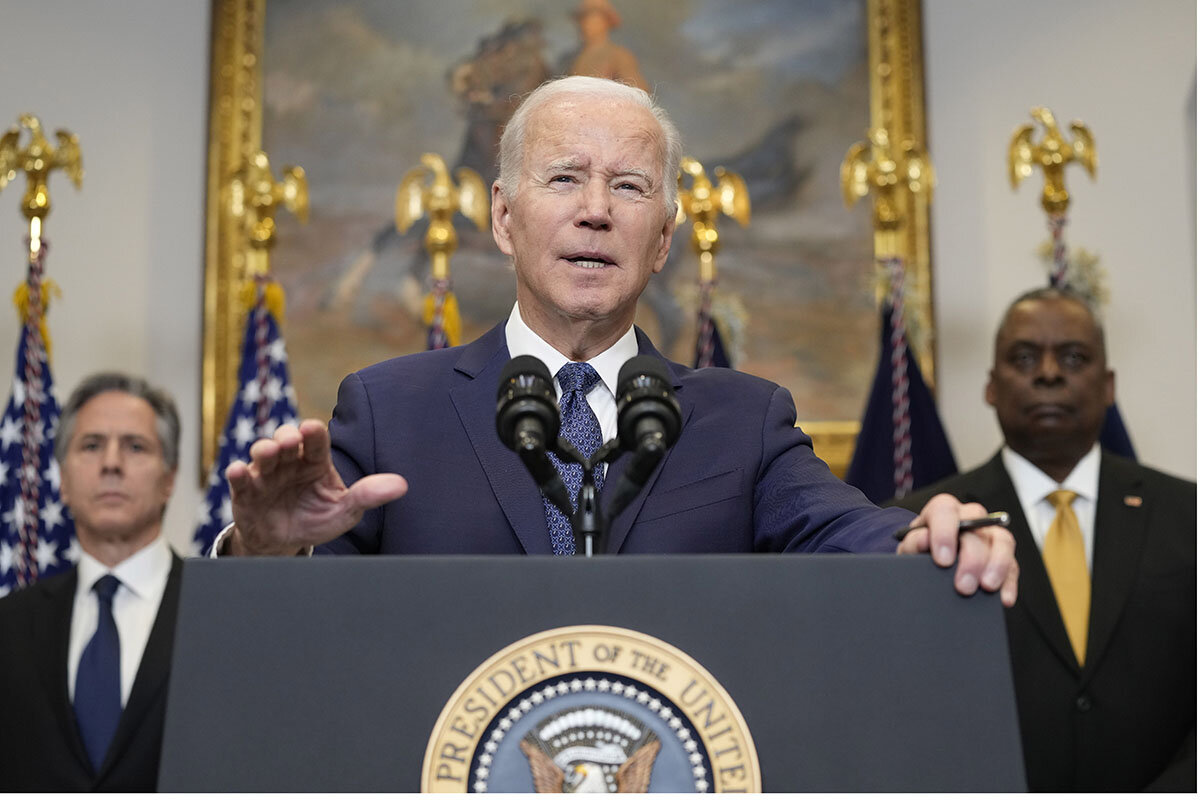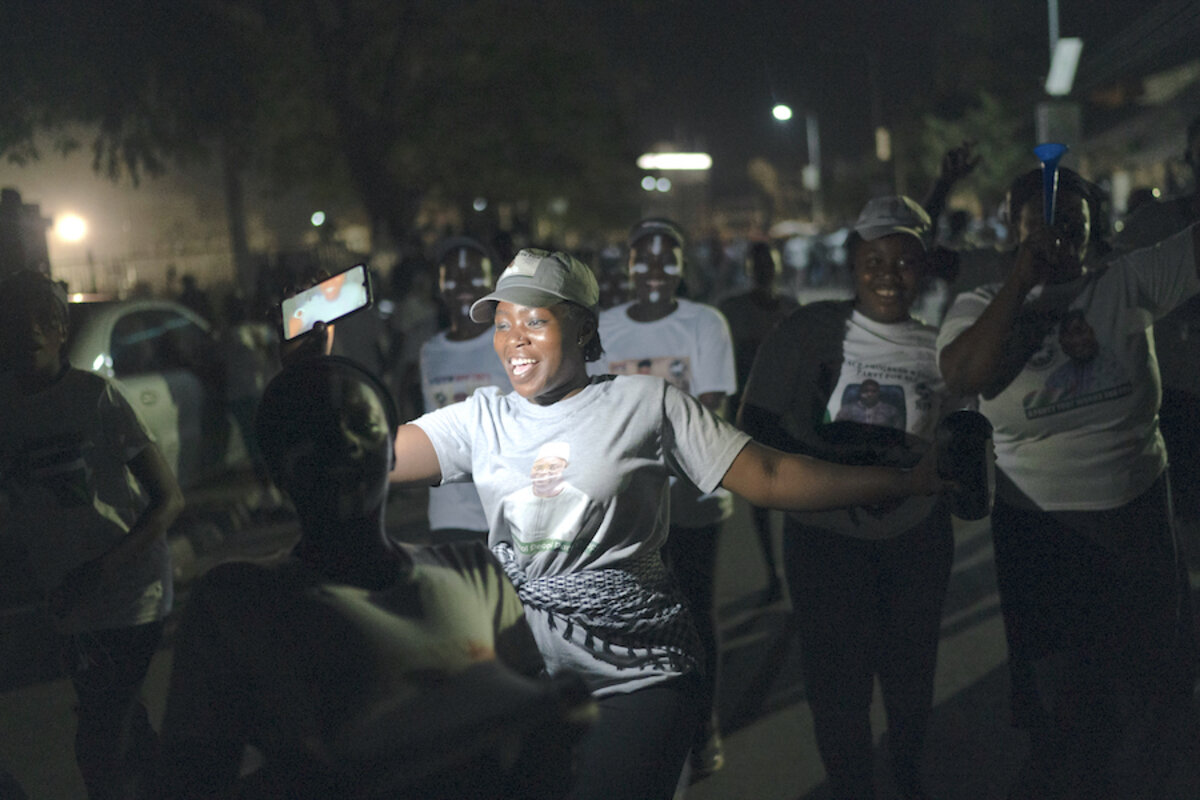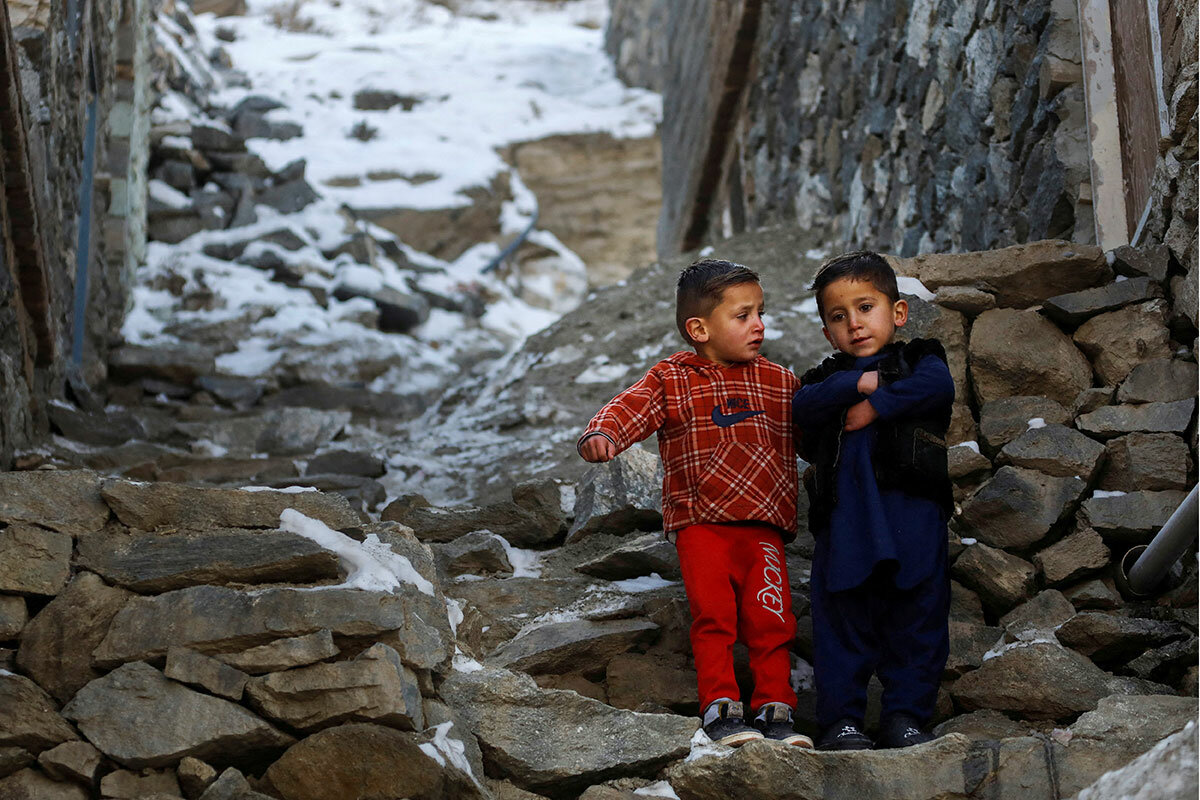Japan and Germany, World War II’s two great vanquished powers, are both enhancing the role and stature of military power in their diplomatic and security policies. Their adversaries may differ, but their motivations are similar.
Monitor Daily Podcast
- Follow us:
- Apple Podcasts
- Spotify
- RSS Feed
- Download
 Linda Feldmann
Linda Feldmann
Why should the average voter pay attention to the race for chair of the Republican National Committee, or RNC? After all, national party chairs aren’t as powerful as they used to be. Clout has shifted – ironically owing to campaign finance reform – toward wealthy individuals and super political action committees.
But the head of the party actually does still matter. Whoever wins a majority in voting by 168 RNC members Friday will face a fractious party, already gearing up for the 2024 elections – including former President Donald Trump’s attempt at a comeback.
Remember the 15 rounds of voting it took to elect Republican Rep. Kevin McCarthy speaker of the House early this month? Those same forces are at play, mainstream versus MAGA, at the party meeting in Southern California as Chairwoman Ronna McDaniel seeks a rare fourth term.
Ms. McDaniel’s main opponent, former Trump lawyer Harmeet Dhillon, argues for new leadership after three disappointing election cycles.
Florida Gov. Ron DeSantis, a likely 2024 presidential contender and Mr. Trump’s top competitor for the GOP nomination, endorsed Ms. Dhillon on Thursday. “I think we need a change, I think we need to get some new blood in the RNC,” Governor DeSantis told conservative activist Charlie Kirk, who also supports Ms. Dhillon.
Mr. Trump has not endorsed in the race.
McDaniel supporters say the GOP’s recent underperformance is not her fault, and prefer her style. “Republicans are at risk of being fractured, and Ronna has a steady hand that keeps the different wings together,” Ari Fleischer, a veteran Republican analyst and former White House press secretary, told me Wednesday.
Still, he adds, “elections for party chair are the ultimate high school beauty contest. People make promises, but nobody really knows who will vote for who. I’d be very, very surprised if Ronna lost, but it’s 168 people voting in a secret ballot.”










